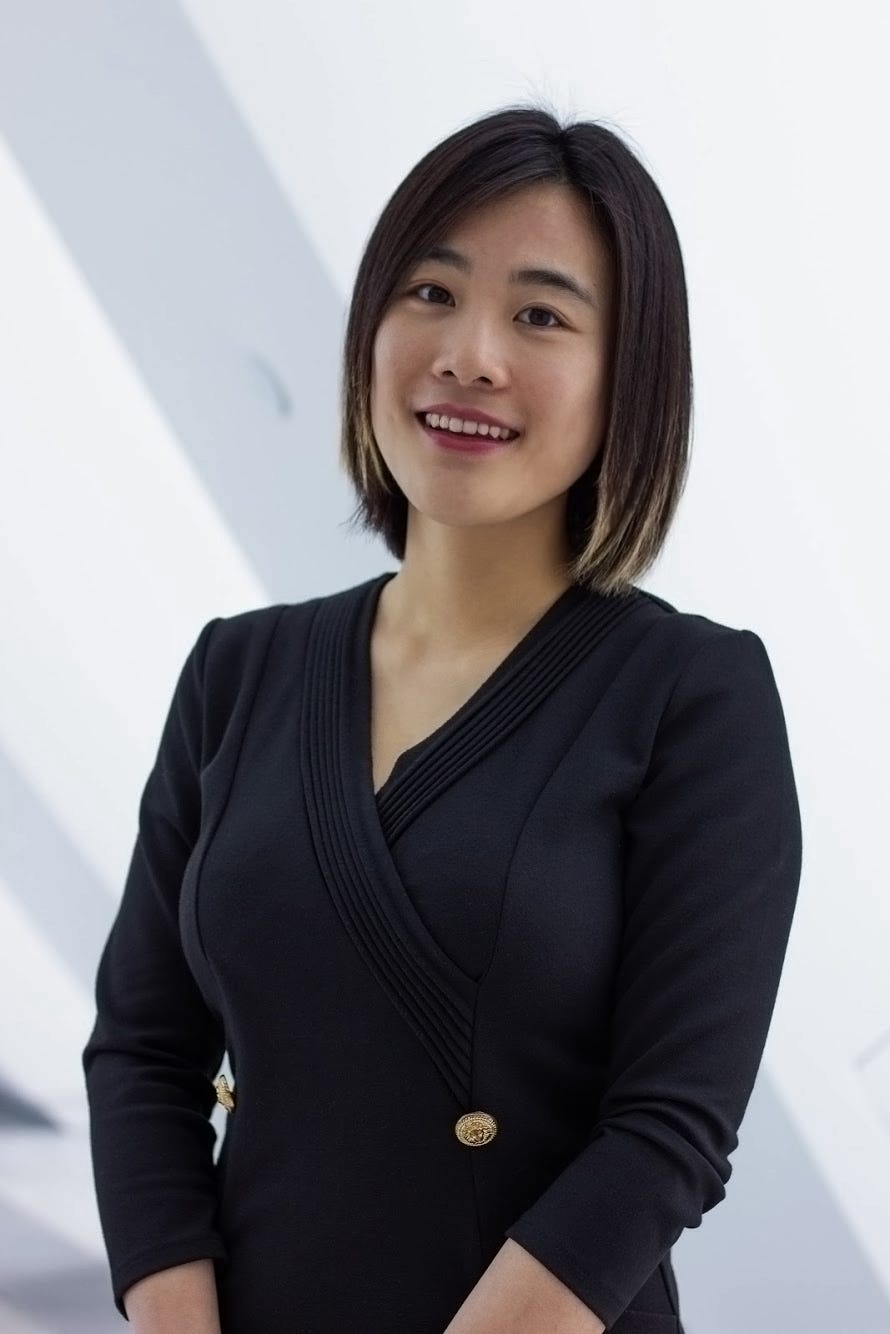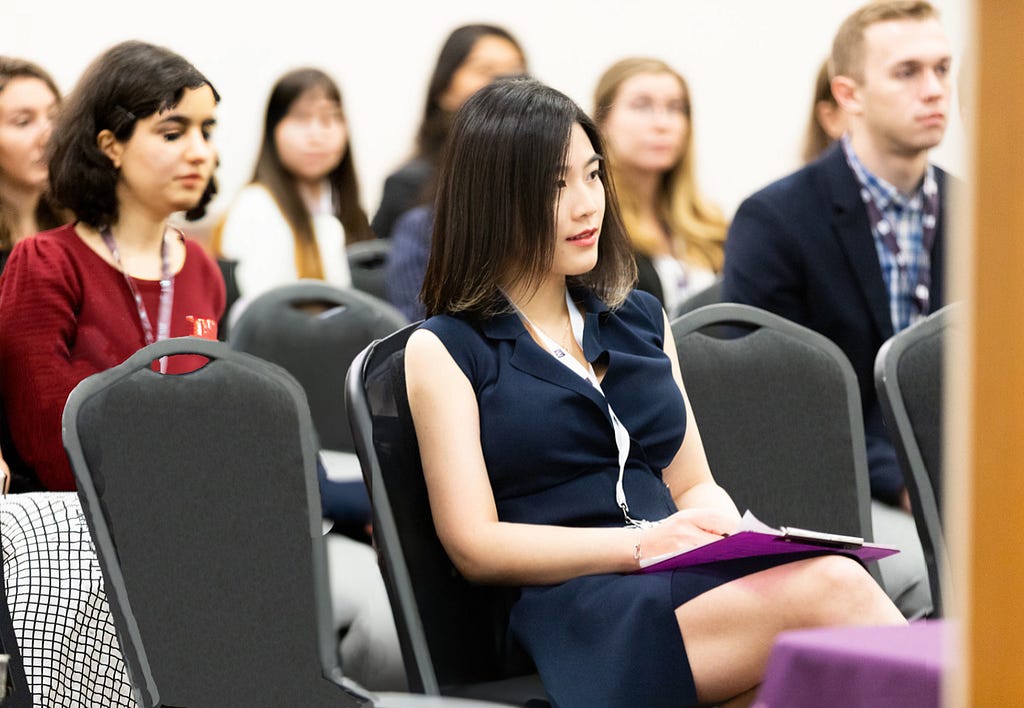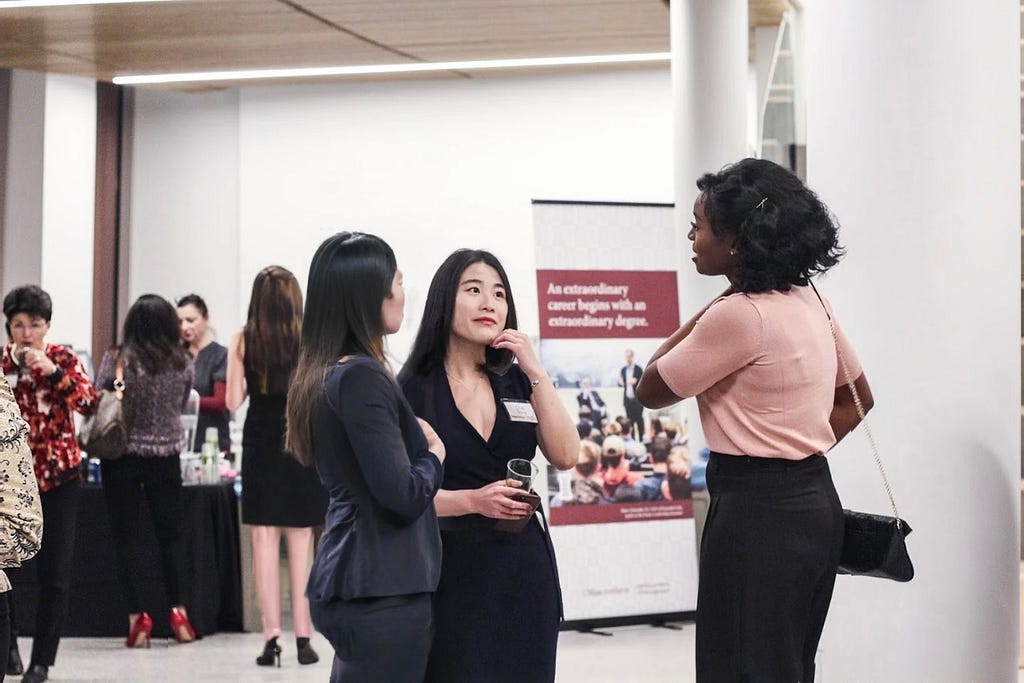Chris Dong, MEng ’22 (EECS): “I will never forget the slip of paper that I used to forge a new path for myself.”
On ethical research, lifelong learning, and no longer being the only woman in the room
Without any support or guidance, Chris Dong accomplished what had once been just a pipe dream: she set foot on her dream campus and embraced a new life in the US. Now the first in her family to earn a bachelor’s degree, let alone a master’s and a PhD, Chris is looking to make meaningful change in the world. Whether that be by improving the evaluation of robot chips to reduce potential harm or using her life experience to empower women and underrepresented students to pursue education, the world will be better off because of Chris and her ambitions. This is her story.
How did your academic journey begin?
On a frigid January night, crammed in a workshop between spools of solder, shelves of electronic parts and wire cutters tearing at my clothes, I sat, enlightened by the faint shimmer of the TI-99/4A computer I had secretly salvaged from scraps around me.This glitter of light that enamored the 10-year-old me continues motivating me to explore the world. Sneaking English worksheets into my workbench, I set my sights on pursuing education in the US and applied without any guidance, overcoming the lack of support and following through. Years of preparation brought me one of the brightest moments of my life: running home, I clutched my admission offer letter to my chest as images of freedom and growth swirled in my mind. While merely an administrative document to the school, I will never forget the slip of paper that I used to forge a new path for myself. This started the chapter of me independently pursuing my education overseas as the first in my family to go beyond a high-school degree. Seeing another way of life ignited a flame that illuminated my path ahead of me. Yearning for the chance to learn, I couldn’t help but pick up class after class, and before I knew it I had finished my third undergraduate degree at the University of Massachusetts Amherst. Determined to develop skills as a researcher, I continued on to my master’s and PhD program at UC Berkeley. Motivated by lifelong learning, I strive to translate my experience to introduce meaningful changes to the world.

How did your studies and work experience inform your professional goals?
Thousands of totes rumbled around me with an omnipresent clatter as I stared down miles of conveyor belts, watching swarms of stacked packages drift upon Kiva Robots in an intricate dance.This was my daily work environment where I tested the warehouse robots running restlessly at Amazon fulfillment center. It was there that I was awakened to the scale and utility of robotic systems but also to the fragility of humans, only protected from thousands of pounds of metal by a wireless transceiver. This reality motivates me to focus on robustness, safety, and practical deployment of robotic systems. From my research experience to my industry experience at Amazon and Tesla, my dream has been to enable intelligent and adaptable autonomy in robotics. However, working directly with robotics has allowed me to see how such powerful robustness fails to meet the safety standards in real applications.
How did you address this problem in your capstone project?
Understanding that failures in robotics systems can result in life-threatening accidents, especially as robots have more autonomy, I feel strongly about conducting human- and safety-centric research in robotics. I co-founded and co-authored “A Co-Simulation Infrastructure Enabling Pre-Silicon Robotics SoC Evaluation,” to develop robust methodologies for evaluating robots and robotic chips before they are deployed. Along with my Berkeley MEng capstone project team, I have been continually breaking down ambiguous problems into testable hypotheses — from physics calculations that describe a component of a robotic work-cell to programmed simulations that model the full robotic system. After two years of dedication, our paper is now going to be published at the ISCA conference! I would like to continue conducting meaningful and ethical research in robotics and to organize open-source releases and workshops to foster collaboration.
How do you use your experiences to help others?
The challenges I faced in accessing education gave me unique strengths and capabilities to nurture, mentor, and uplift the people around me. As an undergraduate, I volunteered for the Vela Scholars program at the Amherst Regional Middle School, where I spent four years supporting middle school students from low-income families who struggled with learning and developmental disabilities.It broke my heart to see students at risk of expulsion who were clearly struggling. After calling students’ parents and visiting their homes, I saw how deeply vulnerable and terrifying it was for the children.Understanding how much the students needed someone to advocate for and support them, I took up that role. As I hosted weekly after-school activities and events to promote the children’s development, I paid careful attention to students from underrepresented and nontraditional backgrounds who often felt discouraged and considered dropping out in a purely virtual environment. I reached out to students and met individually with those who felt isolated or who were struggling academically. The attention I spent was worth it when one student confided in me that although they were planning on dropping out, I inspired them to persevere through their program. Although I initially felt vulnerable in an academic environment, my background gave me the strength to inspire my fellow students and the compassion to understand and support them. My unique experiences and commitment empowered me to build long-lasting relationships with my students, and I cherish each moment when students reach out to me even years later.
What kind of impact do you want to have on your community and the STEM industry?
Across classrooms, conferences, and industry, I couldn’t ignore repeatedly being the only woman in the room. Determined to make a change, I led a team of nine students and four advisors for the 7th-9th Annual Women of Isenberg Conferences to connect current students with alumni and industry professionals. During the pandemic, I took the initiative to reformat the conference to a virtual speaker series and surprisingly engaged more people than ever before.
Chris Dong, MEng ’22 (EECS): “I will never forget the slip of paper that I used to forge a new path… was originally published in Berkeley Master of Engineering on Medium, where people are continuing the conversation by highlighting and responding to this story.




